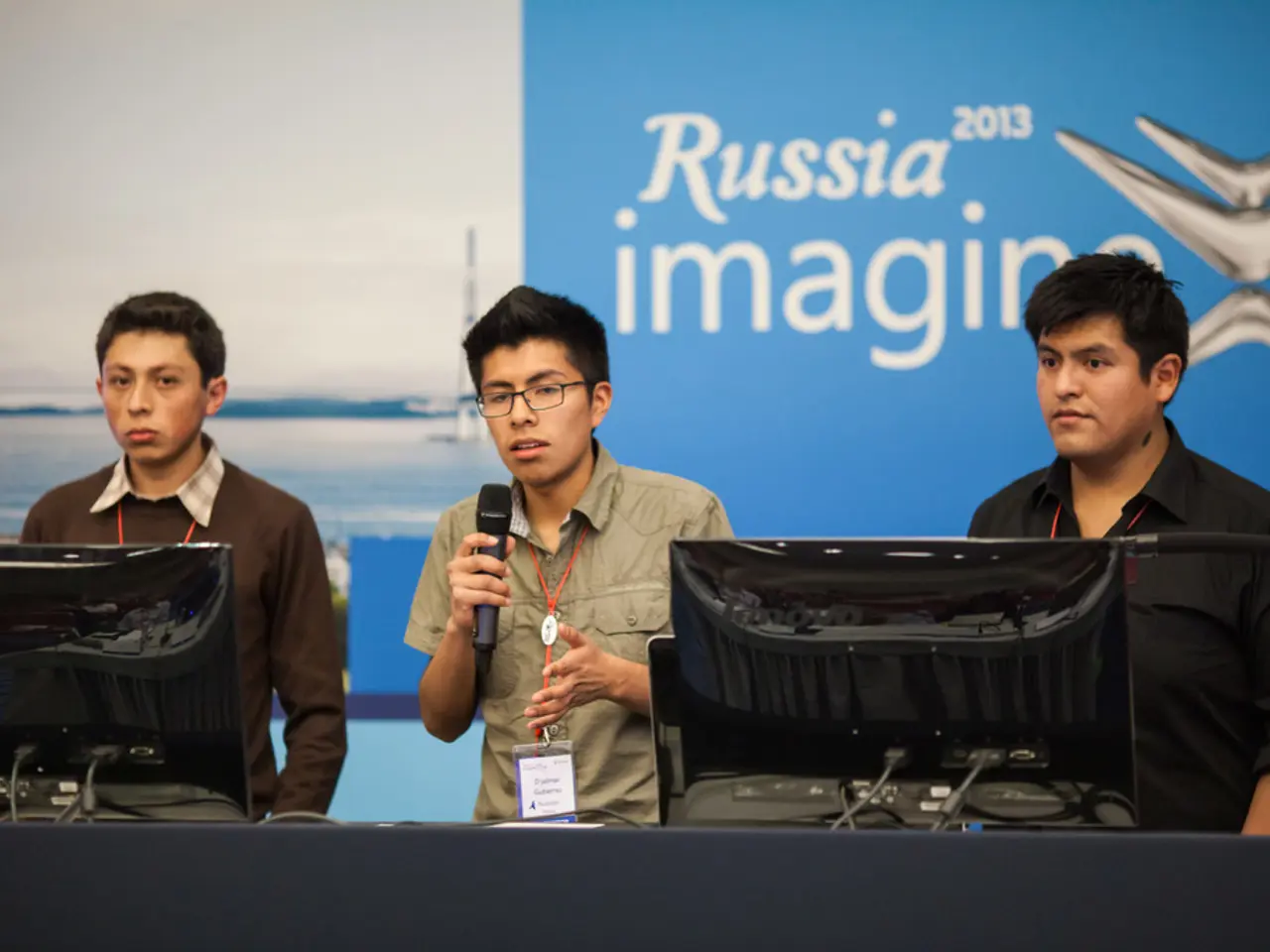China's Innovative Approach to Semiconductor Industry: Overcoming US Export Restrictions via DeepSeek's Workaround Strategy
In the ever-evolving world of artificial intelligence (AI), a Chinese startup named DeepSeek has made a significant breakthrough that could shake up the global AI landscape. By optimising its software, DeepSeek has managed to achieve performance parity with leading US AI systems using less advanced semiconductor chips.
This achievement, which demonstrates the potential of software optimization to offset chip-level disadvantages, has raised questions about the long-term effectiveness of the US strategy to constrain China's AI progress through limiting access to cutting-edge chips.
For some time, the US government has been pursuing a policy of denying Chinese companies access to the most advanced AI accelerator chips, citing national security concerns. The US has also been pressuring major chip manufacturers to halt sales of high-end GPU and TPU chips to China.
However, DeepSeek's software is able to compensate for hardware limitations through a combination of algorithmic innovations and low-level performance tuning. This allows the startup to achieve efficiency that is 2-3 times higher than standard deep learning frameworks on the same hardware.
The DeepSeek breakthrough underscores both the promises and perils of the AI revolution. On one hand, it offers hope of a new path forward for Chinese AI companies facing tightening export restrictions. On the other hand, it highlights the need for close collaboration between industry, academia, and government to navigate the challenges and opportunities ahead.
The US may need to reevaluate its reliance on chip controls as a primary means of maintaining its edge. As the AI arms race enters a new phase where software innovation could become as crucial as hardware advancements, investing in software innovation, diversifying supply chains, and staying attuned to geopolitical risks will be critical to success in the age of AI.
Finding ways to harness the potential of AI while mitigating its risks may be one of the defining challenges of our time. Establishing international norms and safeguards around AI development could become increasingly urgent as the race to lead in AI technology continues.
China is pouring resources into optimizing AI code, and this trend is likely to continue. As DeepSeek's success shows, software optimization has proven quite effective for Chinese AI startups in partly circumventing US export controls and maintaining competitiveness in the global AI industry.
Businesses must adapt to an increasingly complex and unpredictable landscape due to the US-China AI competition. The DeepSeek news serves as a reminder that staying ahead in the AI race requires not just hardware prowess, but also software ingenuity and strategic thinking.
- The US may need to reconsider its focus on chip controls as a primary strategy for maintaining its lead in the AI industry, given the potential of software optimization to counteract hardware disadvantages.
- As the global AI landscape evolves, investing in software innovation will be crucial for success, alongside diversifying supply chains and staying aware of geopolitical risks.
- The race to lead in AI technology between the US and China is increasingly complex, requiring not just hardware expertise, but also strategic thinking and software ingenuity among businesses.
- The success of DeepSeek, a Chinese AI startup, highlights the need for close collaboration between industry, academia, and government to navigate the challenges and opportunities in the AI revolution.
- Establishing international norms and safeguards around AI development could become increasingly urgent, as the competition between the US and China in AI technology continues and software optimization becomes more critical.
- China is focusing on optimizing AI code to partly circumvent US export controls and maintain competitiveness in the global AI industry, a trend that is likely to continue.




